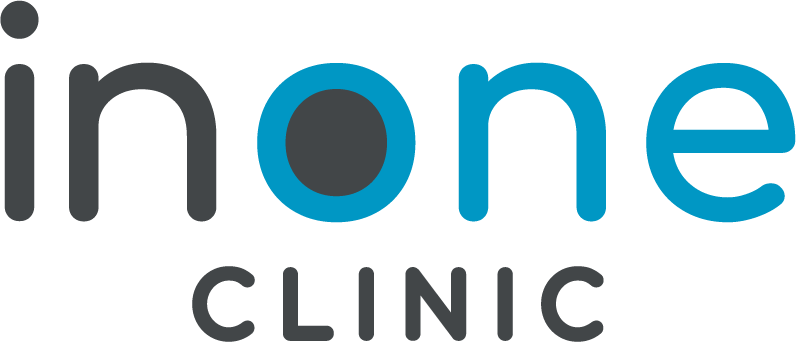“In the world of fitness and sports performance, post-training recovery is crucial for long-term success. Physiotherapy emerges as a valuable resource in this process, offering techniques and strategies that can optimize muscle recovery and help you achieve your performance goals more effectively. In this article, we will explore in detail how physiotherapy can enhance your post-training recovery process, debunking misconceptions and highlighting its key benefits.”
The Importance of Muscle Recovery
Before delving into the role of physiotherapy in muscle recovery, it’s crucial to understand why recovery is so vital for athletes and fitness enthusiasts. During training, muscles experience micro-injuries and undergo metabolic stress, resulting in fatigue and exhaustion. Proper recovery allows muscles to repair and rebuild, leading to gains in strength, endurance, and overall performance.

Demystifying Physiotherapy in Muscle Recovery
Myth 1: Physiotherapy is Only for Injuries. While physical therapy is certainly effective in treating injuries, its usefulness goes far beyond that. Physical therapists are trained to address a wide range of musculoskeletal problems and offer techniques that promote muscle recovery after intense training or non-impact activities such as boating trips or surfing.
Myth 2: Physiotherapy is Passive. Another common myth is that physiotherapy involves only passive techniques, such as massages or assisted stretching. While these techniques may be part of the treatment, physiotherapy also includes therapeutic exercises, strength training, and self-care education, all of which are essential for optimizing muscle recovery.
Myth 3: Physiotherapy is Only for High-Level Athletes. Physiotherapy is not exclusive to elite athletes. People of all fitness levels can benefit from physiotherapy in their muscle recovery process. Whether you’re a professional athlete or just a fitness enthusiast, physiotherapy can help you achieve your performance goals and maintain an active and healthy lifestyle.
Benefits of Physiotherapy in Muscle Recovery
Benefit 1: Reduction of Inflammation and Pain After intense training, it’s common to experience muscle inflammation and pain. Physiotherapy can help reduce inflammation and alleviate pain through techniques such as manual therapy, application of ice and heat, and physical modalities like electrotherapy.
Benefit 2: Improvement of Blood Circulation Physiotherapy can also improve blood circulation in the muscles, helping to remove metabolic waste products and promoting the delivery of essential nutrients for recovery. This can accelerate the healing process and reduce recovery time between training sessions.
Benefit 3: Restoration of Range of Motion After intense training, muscles can become stiff and tense, affecting range of motion. Physiotherapy can help restore normal range of motion through specific stretches and joint mobilization techniques, allowing you to move more easily and comfortably.
Benefit 4: Prevention of Future Injuries By addressing muscular imbalances, improving biomechanics, and strengthening weak muscles, physiotherapy can help prevent future injuries. This is especially important for athletes who are subject to repetitive movements or participate in high-impact sports.
Integrating Physiotherapy into Your Recovery Routine
Now that we’ve explored the benefits of physiotherapy in muscle recovery, here are some ways to effectively integrate it into your recovery routine:
- Schedule Physiotherapy Sessions Regularly: Schedule regular physiotherapy sessions as part of your post-workout recovery plan. A physiotherapist can offer personalized treatments tailored to your specific needs and performance goals. This may include stretching exercises, specific strengthening exercises for the muscles worked during training, as well as joint mobilization techniques. Your physiotherapist can provide you with a personalized program that you can follow at home to accelerate your muscle recovery process.
- Practice Active Recovery Techniques: In addition to specific exercises, consider practicing active recovery techniques, such as using foam rollers or massage balls to release muscle tension and improve blood circulation. These self-massage tools can be especially beneficial for reducing muscle stiffness and improving recovery between training sessions.
- Prioritize Rest and Recovery: Along with physiotherapy and recovery exercises, it’s crucial to prioritize adequate rest and recovery between training sessions. This means ensuring you get enough quality sleep, as well as allowing enough time for your muscles to repair and rebuild before engaging in intense training again.
- Listen to Your Body: It’s important to listen to your body and respond appropriately to signs of fatigue and exhaustion. If you experience persistent pain or discomfort during or after training, do not ignore these signals. Consult your physiotherapist immediately to assess any potential injury and receive guidance on how to proceed.
- Maintain a Balanced Nutrition: Nutrition plays a crucial role in the muscle recovery process. Make sure to consume a balanced diet that includes a variety of foods rich in proteins, complex carbohydrates, healthy fats, vitamins, and minerals. Additionally, stay well-hydrated to help your body eliminate toxins and maintain a proper balance of electrolytes.
- Explore Complementary Therapy Options: In addition to conventional physiotherapy, consider exploring complementary therapy options that may help improve your muscle recovery. This could include therapies such as acupuncture, sports massage therapy, compression therapy, or water therapy, all of which may provide additional benefits for muscle recovery and overall well-being.
The Science Behind Physiotherapy in Muscle Recovery
Physiotherapy is based on solid scientific principles that support its effectiveness in muscle recovery. Studies have shown that techniques such as manual therapy, stretching, and muscle strengthening can help reduce muscle pain, improve muscle function, and accelerate the recovery process after intense training.
Furthermore, physiotherapy can help identify and correct muscular imbalances and biomechanical issues that may predispose you to future injuries. By addressing these underlying problems, physiotherapy not only helps you recover faster from training but also aids in injury prevention and enhances your overall long-term performance.
Integrating Physiotherapy into Your Active Lifestyle
To effectively integrate physiotherapy into your active lifestyle, consider the following:
- Make Physiotherapy a Priority: Treat physiotherapy as an integral part of your training and recovery routine. Schedule regular sessions with a physiotherapist and follow their recommendations to optimize your muscle recovery.
- Listen to Your Body: Pay attention to your body’s signals and do not ignore persistent pain or discomfort. Consult your physiotherapist immediately if you experience any discomfort during or after training.
- Learn Self-Care Techniques: Learn self-care techniques that you can perform at home to complement your physiotherapy treatment.
- Perform Recovery Exercises at Home: In addition to physiotherapy sessions at the clinic, perform recovery exercises at home according to your physiotherapist’s recommendations.

